“Excuse me, would you mind giving me a hand?”
The muffled voice sounds a touched concerned, before a woman gingerly emerges from her car with a grand platter cradled in her arms.
Carefully clingfilmed, the metal dish is perched atop an ornate wicker stand. An array of fruit has been carved into intricate shapes.
Taking the dish from her, I find myself wondering what happens if you accidentally drop food intended for monks.
A lifetime of bad karma?
We make our way to the entrance and remove our shoes, as is the custom, before stepping over the threshold.
Once inside, we are greeted by a hive of activity in the kitchen where dozens of dishes jostle for space on the worktop.
A life of devotion at the Thai temple in Aberdeen
Siripetch Sae-Tia greets me warmly, having offered to act as translator during my visit.
I press myself against the wall as a monk walks past. Siripetch has already informed me that monks must not touch women.
There are exceptions of course, such as during a medical examination, but for the most part, this rule must be abided by.
Pale blue socks peek out from under the monk’s robes and an orange fleece is perhaps an indication of the north-east weather in comparison to the balmy temperatures of Thailand.
The traffic may be thundering past on Queen’s Road just outside the window, but within there seems to be a sense of quiet purpose.
Each person has a role to play and they move quickly yet quietly in a bid to get lunch ready – for the monks cannot eat after midday.
During my short visit I come to learn that monks must abide by more than 200 rules, their lives are kept largely within the four walls of Thai Buddharam Temple and Cultural Centre.
Listed building houses the Thai temple in Aberdeen
Based within a listed building known as East Lodge, which is believed to have been one of two gatehouses for Woodend Hospital, you wouldn’t think that a life of devotion and ritual is played out each and every day.
But having often driven past, I was also curious to find out more about Thai culture and now was my chance.
Your Life was invited to take lunch with two monks who reside at the temple, having arrived in Aberdeen last autumn.
From tasting ‘real’ Thai food to observing chanting and finding out more about daily life, it made for a fascinating visit.
Thai Temple has been in city for more than a decade
“I think the temple has been here for more than 10 years now, and we have two monks living here at the moment,” explains Siripetch.
“They are called Phra Phaitoon and Phra Uthit, Phra means monk.
“I’ve been involved since the beginning really, we work from a rota so there is around 15 of us preparing food.
“This is the lunch offering, the chanting starts around 11am and then the monks will come and collect their food.
“This is their routine, the monks aren’t allowed to make their own food normally but here in Aberdeen, they sometimes have to do it if no one else is available.”
The chanting is unlike anything I’ve ever heard, unfathomable to my untrained ears and yet somehow comforting.
As dish after dish is proudly presented, Siripetch explains that the monks live by more than 200 rules.
“They’re not allowed to drive for example, or touch women in any way,” she says.
As I later find out, this extends to even brief contact as plates are passed over, and an orange cloth is deployed to prevent hands from touching in the process.
“Women are not allowed upstairs to their sleeping quarters, and monks only eat twice a day,” says Siripetch.
“They must always eat before midday. Once the afternoon comes, they can have very watery soup or milk, but nothing that you need to chew.”
The importance of giving
Outside of the temple, and the Thai population in the north-east is slowly increasing, particularly in Banchory and Peterhead.
The figure, which Siripetch believes stands at around 300 people, does not come close to the Thai community in Edinburgh and Glasgow.
She talks me through the dishes laid out on the table. They include prawn stir fry, beef curry, dim sum, rice and a Thai sponge cake called pandan.
This is certainly not your classic Victoria sponge, the texture wonderfully light and springy.
The secret, Siripetch says, is that the green sponge is infused with the juices of pandanus amaryllifolius leaves.
Quite where you source such leaves in the Granite City is anyone’s guess. However, Siripetch says there several Thai supermarkets where all manner of things can be bought.
Phra Phaitoon and Phra Uthit come through to collect food, each carrying an Alms bowl before helping themselves.
The women meanwhile, hold back and keep their distance.
“We have a culture of giving in daily life, and sharing food in this way is to give without any doubts,” says Siripetch.
“We always eat after the monks have chosen what they want, Thai food is about freshness and flavour.”
I am introduced to Kanyakorn Ritchie, whose husband works in the oil and gas industry. She explains that anyone can come to the temple.
Following the rules
“Everyone is welcome, and we’ve had local people visit to learn about meditation,” she says.
“We’ve also had young boxers come to visit prior to a fight, so they can be blessed by the monks.
“If someone wants to be a monk in Thailand, we refer to it as a duty, or something that is in their blood.
“I’ve benefitted just by visiting the temple, especially when my mum passed away.
“Coming here helped me a lot, it’s the sense of calmness.
“I think people want to become monks because the life is so peaceful.”
It’s also not a question of becoming a monk for life, as men can in fact become monks for short periods before returning to their previous life.
“There’s a great amount of respect for monks, they are figures that represent Buddhism,” says Kanyakorn.
“In Buddhism there are five precepts.
“We must avoid lying, stealing, intoxication, sexual misconduct and killing.”
The principles are not so dissimilar from Christianity, but as we settle down to eat, there are also differences.
From eating with a fork and spoon to enjoying all the dishes at once, as opposed to a starter and main, there is a great deal of laughter around the table.
Sharing food together
I am warned off the spicier dishes, which include what looks like beef mince, but is in fact a mouthful of pure fire.
“This is like the food in Thailand, not what you’d normally order from your local Thai takeaway,” laughs Kanyakorn.
We eat with a fork and spoon, and the women are adept at balancing a plate on their knee.
They take pity on my clumsiness and offer me a a seat at the table, before bringing me a bowl of steaming tom kha gai – a delicious concoction of chicken, coconut and lemongrass.
Once the clearing up begins, I am taken through to speak with Phra Phaitoon and Phra Uthit, who are sitting cross legged on a slightly raised wooden platform.
The colourful room contains a Buddhist shrine where offerings have been made, and I lower myself on the floor ready to begin.
Phra Uthit looks at me intently as I speak, and both monks are currently learning English.
Finding contentment
“I have been a monk for 14 years, when I arrived in Aberdeen I thought it was very cold,” he says, and everyone laughs.
“It seems a nice place to live but the weather is very changeable.
“I never thought I would become a monk, it wasn’t something I always wanted to do.
“But I liked the Buddhist teachings, I’ve been a monk since I was 20 years old.”
Phra Uthit goes on to explain that he wakes up around 5am, but in Thailand one hour earlier.
Chanting starts at 6am, followed by cleaning and tidying.
“We meditate and I am also learning English,” he says proudly.
“Evening chanting takes place between 6 and 8pm, followed by bed at around 10.
“My robes consist of three pieces and the robe must always cover the chest,” says Phra Uthit.
“In Thailand, the layers are handy because of the heat and we’re allowed to choose different shades of the same colour.
Phra Phaitoon is considered Phra Uthit’s senior, having been a monk since he was just 12 years old.
News on an iPad but no Netflix allowed
Seventeen years have passed, and he tells me he has no plans to return to his old life.
“It was my mother who suggested I become ordained, so I could learn about the Buddhist ways,” he says.
“This is a life of devotion, a way to promote Buddhism and enable people to believe and respect in the teachings.”
I notice that Phra Phaitoon has an iPad, which seems at odds with an otherwise simple life.
But far from watching Netflix, the monks are only allowed to keep abreast of the news.
They will never visit His Majesty’s Theatre or go to the cinema, because entertainment is banned.
But far from being a life of sacrifice, Phra Phaitoon seems firm in his contentment.
“We teach people that material things are not everything,” he says.
“We do not cling to things.
“Do I get angry? I have learnt to stop anger before it gets to my heart.
“This is part of our way of life, to develop love and compassion always.”
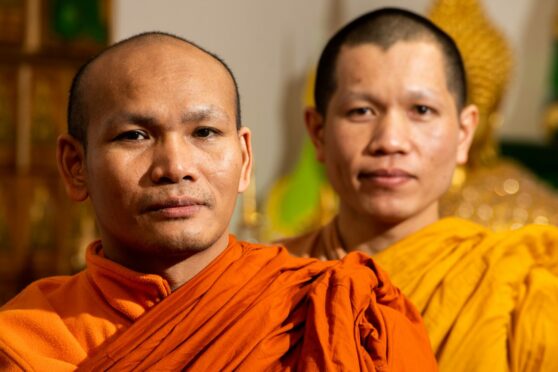
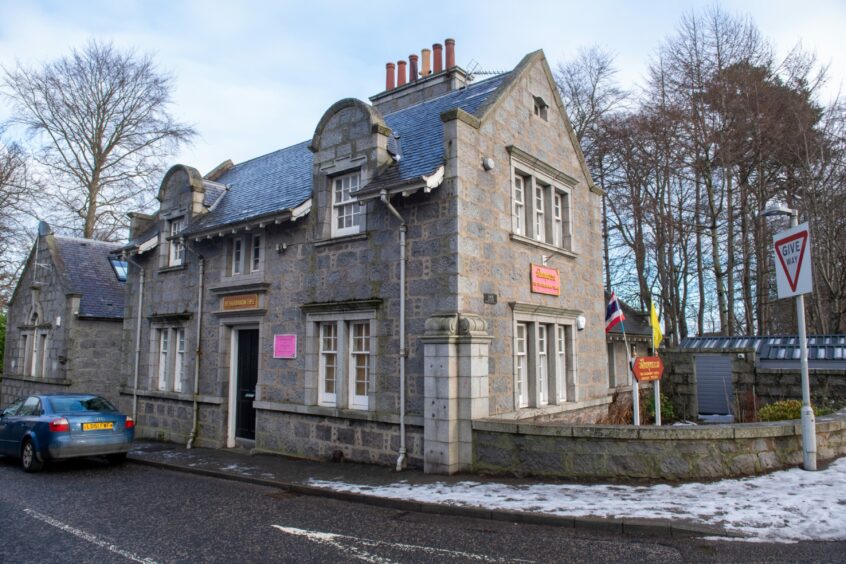
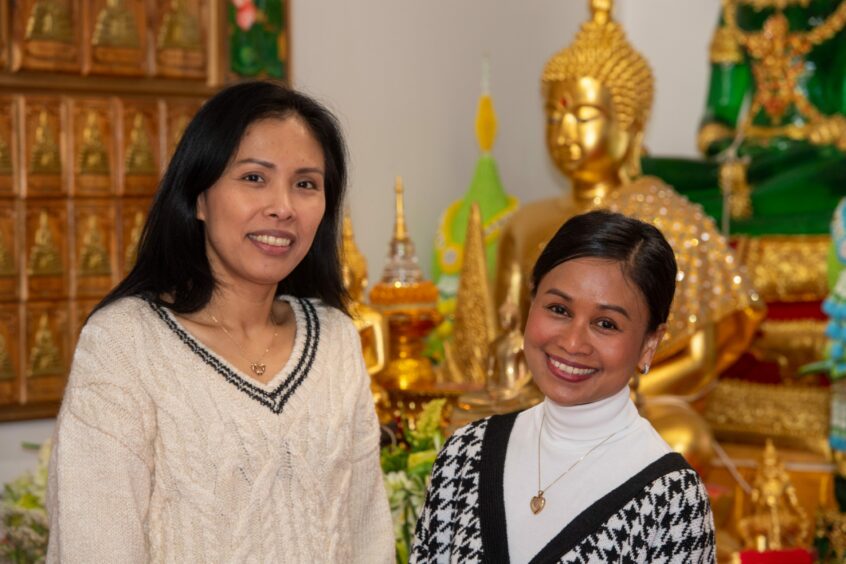
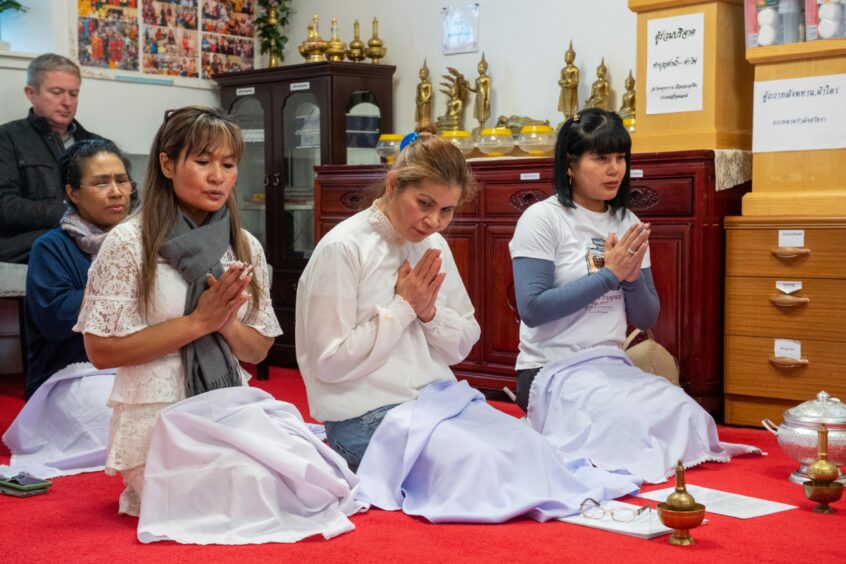
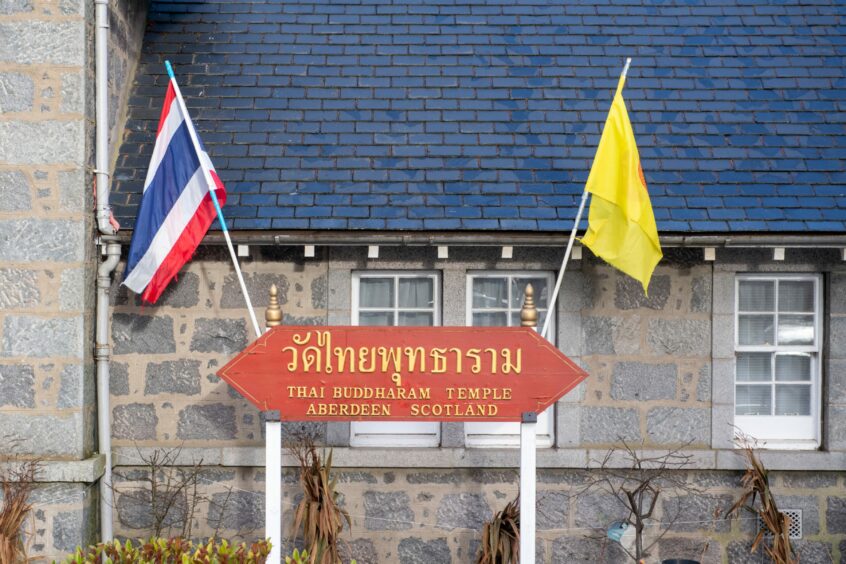
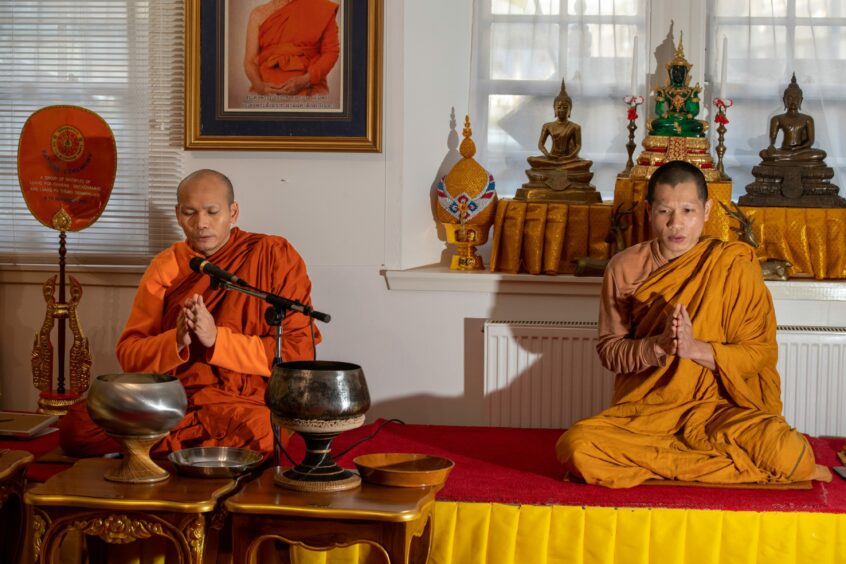
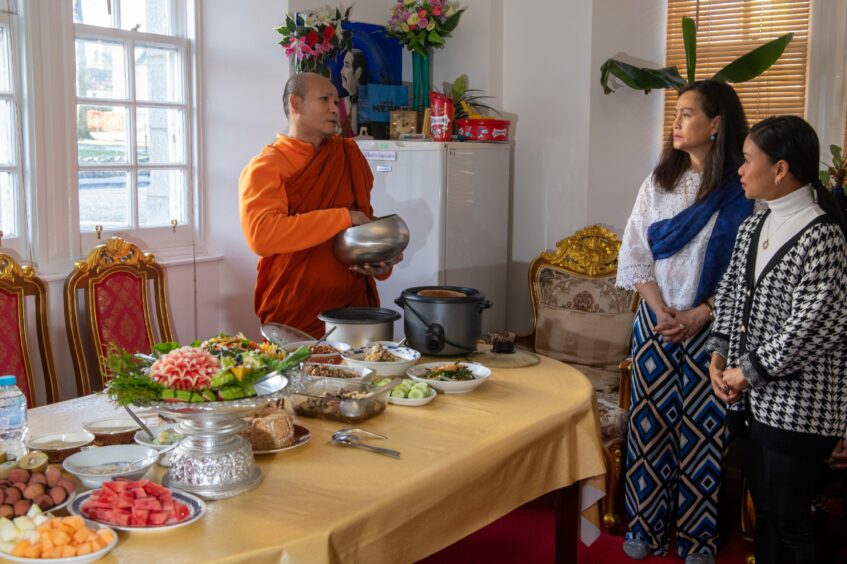
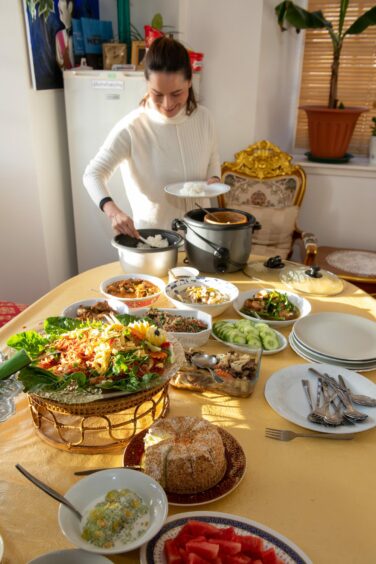
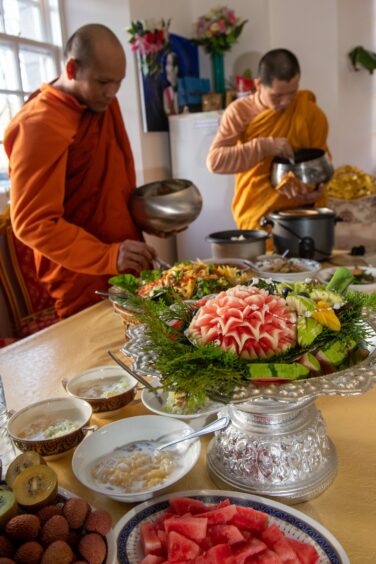
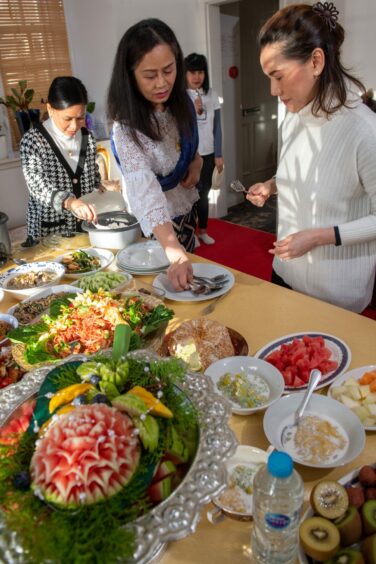
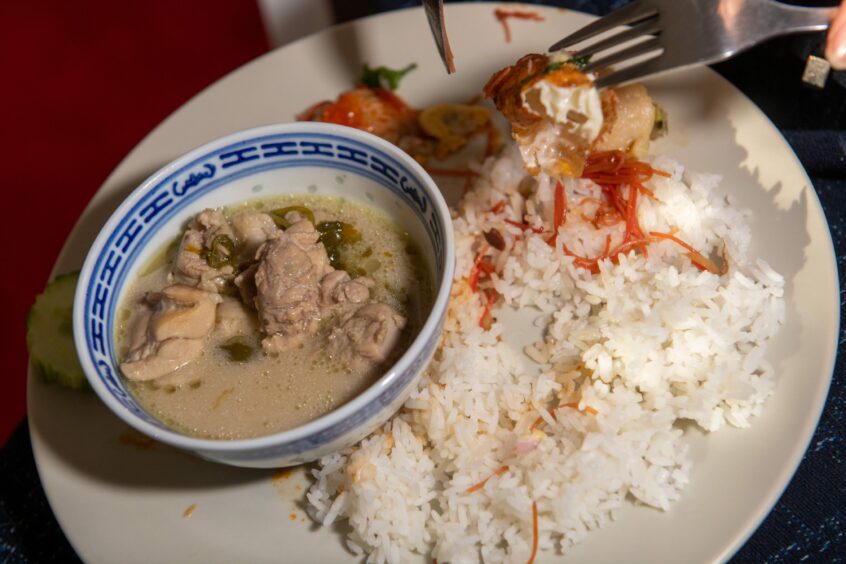
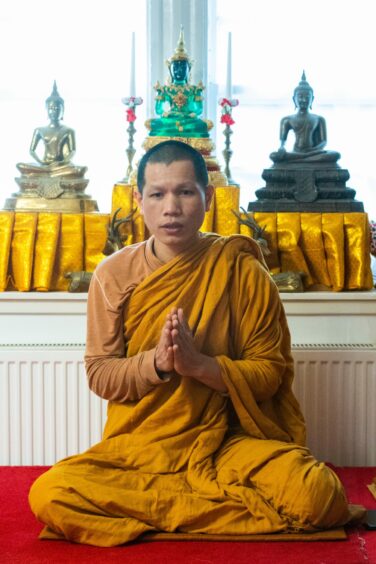
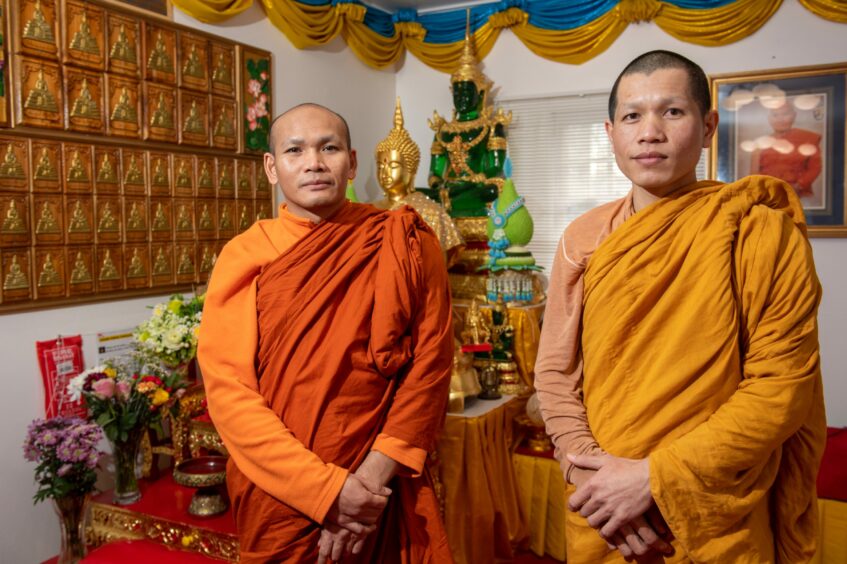
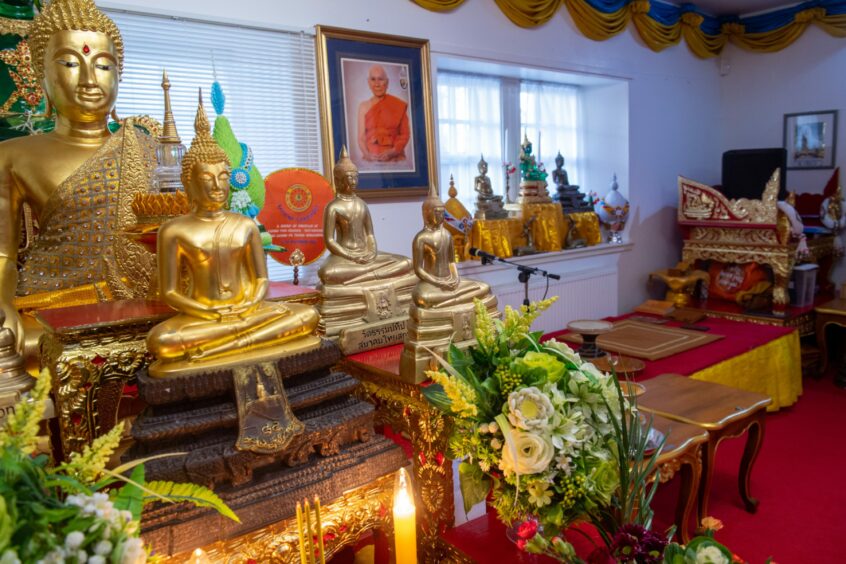
Conversation